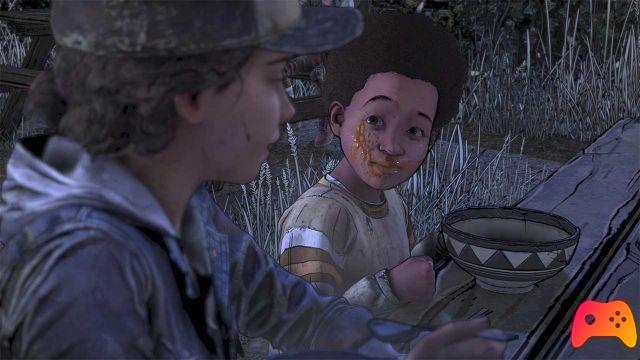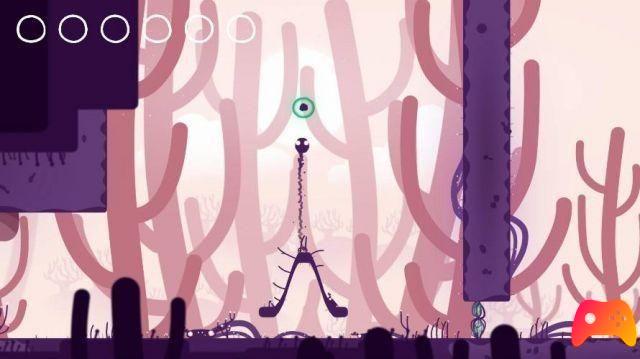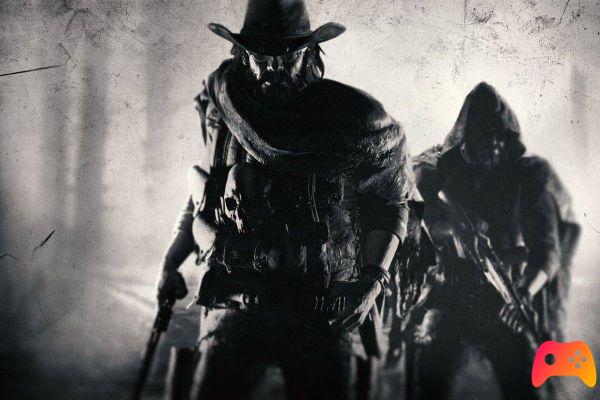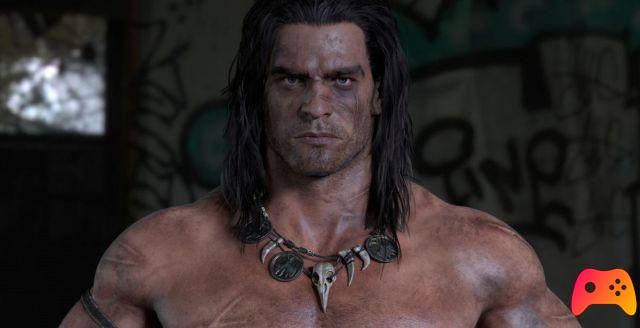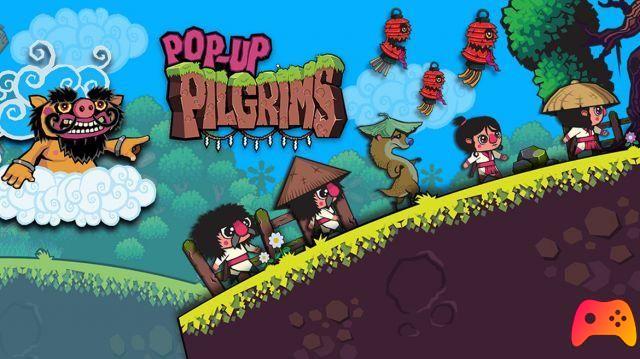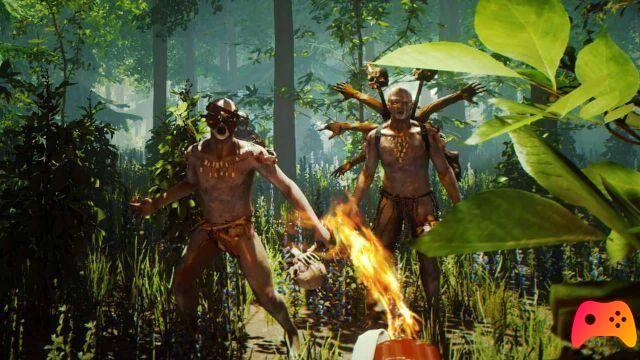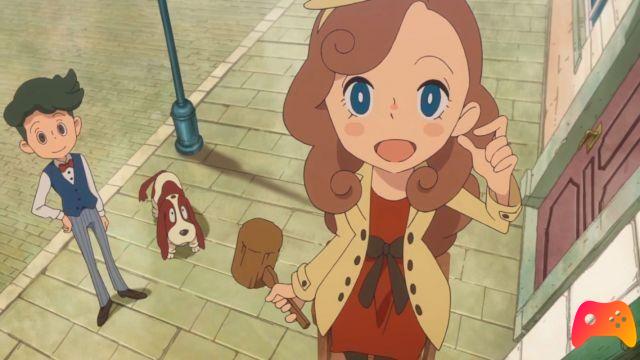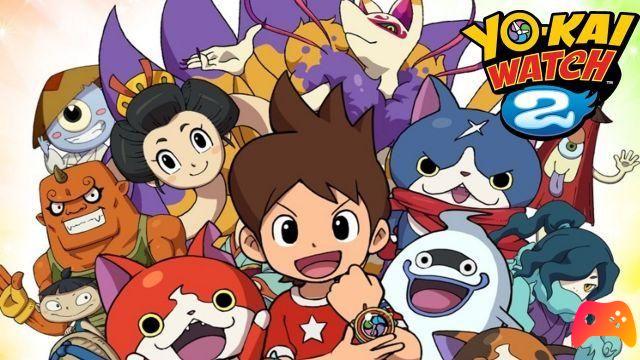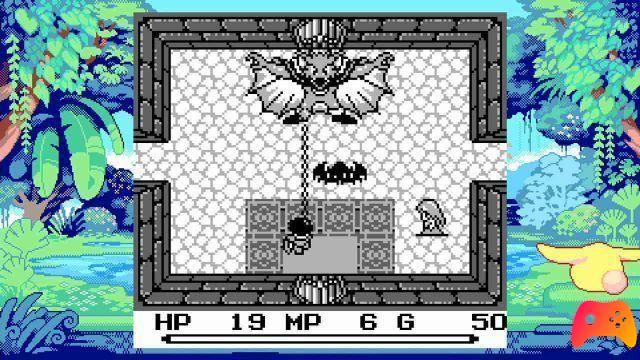
Review for Death Stranding. Game for PC and PlayStation 4, the video game was released on 08/11/2019 The version for PC came out on 14/07/2020
There was once an explosion, an announcement that seemed to give rise to time and space.
It was June 13, 2016 and E3 2016 saw Kojima return (if he ever left him) to the stage of our attention with the announcement of Death Stranding, the first game created by his game studio, Kojima Productions. The trailer was enigmatic to say the least, but it had (and still has) a thousand points for reflection, so many as to make the wait a torture even for the fan minimally interested in the actual outcome of Kojima's mens prolifica.
From there it was all an exciting roller-coaster, with trailers released by surprise, news directly from Kojima Productions and millions of millions of theories about the likely narrative content of the game.

Once there was an explosion, a release dedicated only to the press that left Death Stranding spinning in the cosmic void of consciences unprepared to welcome it, anchored only to our desire to play with it, to immerse ourselves completely in it and find out if all that waiting. it was worth something. At one time there was an explosion, a cascade of reviews that in some cases they seemed to praise him at least as much as in others they seemed to crush it as the enormous disappointment of a game designer whose limits had hitherto been hidden by the titanic shadow of Konami.
At one time there was an explosion, a public exit that made it difficult to extricate oneself between fanboys and blind detractors, with both sides apparently falling into the invisible trap of judging Death Stranding just for the "game" costume it wears.

And then there will be another explosion: that of your mind when you get your hands, if you have not yet done so, on Death Stranding, when you cross the spaces and face the emotions, when you leave. slap and then rock from the message that inevitably hides among the pixels of Kojima's title. Death Stranding can metaphorically save us from ourselves, we just need to have the emotional maturity to show him the side of our vulnerability.
In our analysis of Death Stranding we will try to use the same dualistic metrics that started Kojima in his creative process, that Manichaeistic division of instruments man-made in sticks and ropes, originally "unearthed" by Kobo Abe.
Let's start from the plot.

You will play the role of Sam Porter Bridges, a courier ("porter") who, by his own admission, only thinks of making it to the end of the day in a world where his role is an essential convenience: the continent has been devastated by a called apocalyptic phenomenon "Death Stranding", an event so catastrophic in its incomprehensible vastness that it has fragmented America into many very small realities, mini-communities that have preferred to remain isolated and close in on themselves rather than contribute to the - never more necessary than now - collective well-being.

Sam will find himself entrusted with the mission of rebuilding society and reconnecting America from coast to coast, moving from East to West, delivering the cargo necessary to these very isolated realities to help them and convince them to reunite with the UCA (United Cities of America) and, consequently, al chiral network, a sort of internet super-network that uses some interesting properties of the Death Stranding.

The core loop revolves around this: the delivery from A to B of important packages of various sizes, weight, importance and nature, also respecting some necessary basic requests, such as avoiding to let the cargo enter the water, or the presence a deadline for delivery.
For this purpose the environment is our main, omnipresent and ineluctable enemy, a game world that constantly challenges us to overcome the limits imposed by the delivery conditions but also our possible lack of skills or means, all elements of a titanic but balanced Man VS Nature that cannot be associated with classic titles such as Moby Dick or The Seventh Seal.

The menu dedicated to load management is initially overflowing with options, indices and parameters but, like many other aspects of Death Stranding, it is hostile only initially, in exactly the same way as one of the heights or crevasses of its world.
La preparatory phase, at least that relating to the positioning of the load on one's shoulders, is speeded up by a very convenient command that allows us to travel on-the-go, sure of having the best possible configurations; however, the charm of preparing for the trek in each of its stages remains intact, observing the map and creating intermediate markers capable of guiding us to our destination without being forced to constantly pause to evaluate the route.

The crossing of the rooms is made even more immediate by theOdradek, a sort of sensor placed on our shoulders which, at the push of a button, analyzes the ground directly in front of us and gives immediate feedback on what is around us: obstacles, enemies, points of interest or cargo (abandoned, forgotten or lost by others).

If initially it is the plot, which we will not talk about further, to engulf us in its intricate inlets, it is the mechanics that keep the game scaffold firmly standing, a perfect example of Kojima's skills as a game designer. Why Death Stranding is such a complex game but it never gives in to being complicated: yes, there are many keys to press and there are several visual clues to observe, even if only to make the protagonist Sam walk in a balanced way, but they quickly become automatic, and leave us "only" the pleasure of discovering that particular shortcut or overcoming that particularly difficult snow front.

Death Stranding is a game where you walk, a lot. maybe the most reliable and pindaric of walking simulators on the market, but reducing it to the simple journey from A and B is the equivalent of calling Super Mario just a game in which you jump: the increasingly extraordinary journeys on which we will walk in the role of Sam are almost uniformly the "right" distance and / or duration, with a goal that is constantly beyond the limits of our natural laziness but even more than getting tired of it before having reached them; even though we will interface almost totally with the holographic projections of the people we help with our "take charge and delivery" loop, it is impossible to shake off the feeling of being really helpful for their survival, sometimes not strictly physical but also and above all emotional, spiritual, social.

The context of reunification of the country under the connective web offered by the UCA and the chiral network therefore immediately assumes the role of a metanarrative background on which the whole message of Kojima and his Death Stranding arises: we are isolating ourselves, moving away, closing in on ourselves, and behind the myopia of our most primary and immediate instincts, plugging our ears to the needs of our "roommates", a bit as if we were just waiting for the end; it is a pre-apocalyptic numbness from which we must wake up early, first of all stopping to convince ourselves that we cannot change things by ourselves because it is precisely without us that change is not possible.
In this Death Stranding is perhaps the most revolutionary game in the landscape, at least for what Kojima wants it to represent: in a "stick" world, both videogame and not, that hurts and abandons us, the answer could really be a "rope", that is what unites us ... or what can unite us, at least.

Sam, delivery after delivery, rekindles the flame of hope in communities and cities who no longer even remember how to write "hope", returning the will to live to those who, from Death Stranding onwards, are content to survive.
In playing this title, in fact, there are many situations in which, paradoxically, one has the feeling of having really changed things, more than perhaps a multi-storyline game like Mass Effect or any Telltale can do: if in the examples cited the journey is first of all personal, Death Stranding succeeds in the impossible balance of being Sam's journey, ours and that of the whole of humanity, both in-game and out; it is above all in one of the narrative twists of the finale that we find ourselves moved (or, like us, directly in tears) from the awareness of how much Kojima's title is speaking to us about us, as people and as human beings, as fathers and as children.

Every aspect of Death Stranding is functional to the message it wants to convey, from the traversing mechanics to the totipotent narrative structure, up to the ingenious asynchronicity of the multiplayer: in what at first glance is a joke clearly arising from the toxicity of the web but which to a second analysis actually turns out to be truth, Kojima has detoxified the tradition of classic multiplayer by purging it of its worst part, which is dealing with other people.; in Death Stranding our interacting with others is in fact "limited" to likes and a voice that responds to our call, which can be activated by clicking on the Dualshock touchpad.

An undeniable merit of Kojima's title lies precisely in this interaction with a world that exists and exists in a completely non-invasive way: the contrast between the first hours of the game is really excellent, in which we will sweat every ladder and rope in our attempts. crossing, and the first occasion in which, connected the "node" to the chiral network, we will literally find ourselves surrounded by structures, signs and help from unknown virtual travel companions, who with their disinterested generosity (Kojima is clearly a forceful and accomplice) simplify our journey (aka, life).

There is something that is lost in this loop of exploration without help / connection to the chiral network / subsequent exploration aided by shared goods, namely the pleasure of solving the enigma that the environment puts before us in its crossing, but it is a sensation which arises only in those who play with a selfish perspective, who falls within the pre-existing conceptual limit of the need for immediate gain following an action within the game: every bridge we build or highway we repair will help us, sure, but potentially essential for facilitating dozens of other players; never before has the "common good" been seen as the only logical objective and modus operandi to be implemented, certainly forced by Kojima's hand but no less effective in recalibrating our moral compass during the analysis of strongly "stick" reality of most of the remaining gaming landscape.

Sam's physical interaction in Death Stranding is almost only with his enemies, be they the BTs, supernatural entities stranded in this subtle limbo between earthly life and the afterlife (which we can only observe through our Odradek and the BB connected to it) , or the Mules, couriers too, but so trapped in the load pick-up and delivery loop that they have become a sort of raiders, always looking for the next dose of cargo to steal from the first loser who passes.

If the BTs never really cease to disturb, even if they partially undress, during the run, of the total threat they represent at the beginning - except for the at least 3 bosses that we will face with the fearful feeling of being constantly at a disadvantage - it is the interaction with the Mules that results in the sublimation of what is perhaps the only real big flaw of Death Stranding, the artificial intelligence.
Starting from the assumption (ironic, given Kojima's curriculum) that facing the Mules in stealth is particularly difficult, you will often find yourself having to defend yourself from half a dozen of them, but after seeing that just a handful of well-placed punches and kicks are enough. breaking them down the feeling of danger will vanish very quickly; on the other hand in the second half of the game you will find yourself in front of a version even more free of moral qualms than the Mules, which will prefer to shoot you rather than just deprive you of your cargo, a particularity that will make the clashes more interesting but which will show the side of a combat system not really designed for this type of situation.

If you allow us, we want to immediately get rid of the toad and talk to you on the fly about the second obvious defect of Death Stranding: to cross the boundless expanses of the game world we will not have to rely exclusively on our feet, but the means will help us, with 2 and 4 wheels, useful for shortening distances but completely unmanageable as soon as we find ourselves even a stone on the path, a repeated outcome of so many hikes as to make us annoyed even at the distant thought of taking a steering wheel in hand.
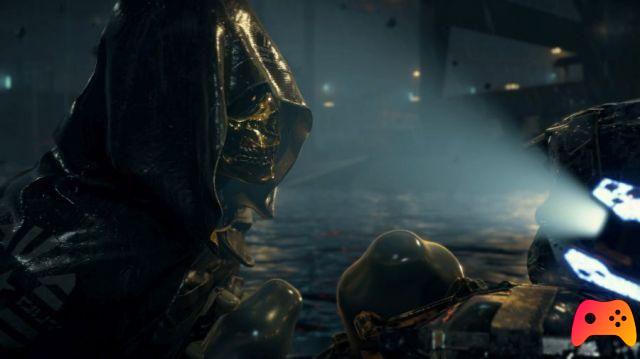
The world of Death Stranding is made, by its nature, of many silences, acoustic voids that are filled in a truly majestic way by some selected sounds, undoubtedly the result of Kojima's musical culture: in many civilizations, it has always been the concept of "good" and "beautiful" they are a single reality and, in full respect of the Greek kalòs, Death Stranding will bring us again and again to experience that perfect endiad of aesthetic pleasure and functional perfection that never before approaches the Japanese yashi; music and aesthetic sense come together repeatedly in moments of pure pleasure for the eyes and ears, be they the rising of a city in the distance under the notes of one of the many songs by Low Roar (here elevated from Kojima to a hybrid between Euterpe and Melpomene) or the embrace of a father and a son accompanied by the epic melancholy of " BB's Theme ".
Another fulcrum of Kojima Productions' work is theensemble of characters, each characteristic and worthy of merit, so much so that each chapter of the 15 of which Death Stranding is composed bears the name of one of them: from Heartman to Deadman, from Fragile to Die-Hardman, every single member of this collective is more than it appears, a further launch to be broken in favor of a game designer who, despite the absurdity of his characters or the context in which they navigate, it reminds us that the what you see is what you get approach is more fallacious than functional, as if to push us to listen more than to hear, to look rather than see; Kojima clearly observes the world and those who inhabit it with an enviable depth, gift and curse of those who, like the protagonists of Death Stranding, suffer a lot or have suffered a lot.

In approaching the final phase of this review we feel the need to make you understand just this, namely that Death Stranding is absolutely not a game for everyone.
We are convinced that the title of Kojima Productions is able to say something to each of you, perhaps in more obvious ways, perhaps in the subtext of the tone of a sentence, or behind the darkness of a look, but it is a work that speaks and says necessary things. Even enemies have gods credible and almost shareable reasons, turning out to be less Machiavellian war machines - to which some videogame and cinematographic realities have accustomed us - and more people like us: broken, fragile, sure that they have passed the point of no return and who abandon themselves to the darkness without the weight of hope to get out of it.

It is not easy to trace such deep furrows in the ground of a landscape so brutally moved by the heels of other mammoth realities, but Death Stranding succeeds with the elegance of a caress and the delicacy of a tear, dozing the emotional restlessness of those who, in this world of constant haste and aseptic coldness, just want to… try.
Death Stranding is functional confirmation of the physiological nature of Kojima (and of the bio of his Twitter account), that of a game creator whose body is made up of 70% from a film: every shot, every aesthetic choice, every mechanical parenthesis is an expression of his desire to communicate, to tell, to make us evolve to that Homo Ludens that since Hoizinga has been recognized as the next necessary step for our survival. Of course, the artificial intelligence of some enemies and means with a too arcade feel could make us turn up our noses, but Death Stranding is like us: far from perfection but still tending to the eternal pursuit of it, imperfect but no less extraordinary . Is it worth it? Absolutely yes.
► Death Stranding is an Adventure-type game developed by Kojima Productions and published by Sony for PC and PlayStation 4, the video game was released on 08/11/2019 The version for PC came out on 14/07/2020




